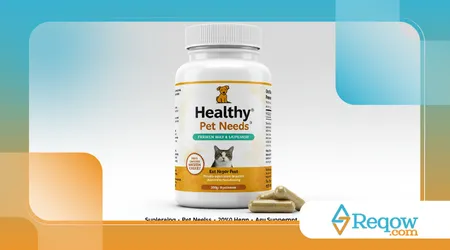After all, does a healthy pet need supplements? When yes, when no

Will a Does a healthy pet need supplements? This question appears in 8 out of 10 groups of tutors concerned about the best way to care for their companions.
Advertisements
On the one hand, supplements promise health and vitality bonuses. On the other hand, an already well-nourished animal can be impacted — and even harmed — by unnecessary added vitamins, minerals or compounds.
Thinking clearly about this requires understanding what the studies show and how products are regulated. Let’s take this journey together to find out when it’s worth considering a supplement — and when plain old pet food does the job better.
Complete nutrition already meets the needs
A feeding commercially balanced and full of seals (AAFCO, FEDIAF, etc.) already guarantees all the essential nutrients for a healthy pet, according to experts. In fact, the American Veterinary Medical Association warns that “healthy pets do not need additional supplements when fed properly.”
This means that if you have chosen the right food — suitable for your pet's life stage, size and specific needs — there is no nutritional gap that would justify adding a supplement as if it were mandatory.
Advertisements
When a supplement can make a difference
There are specific situations in which the supplement leaves the commercial field and enters the clinical field:
- Specific diseases or disabilities: pets with kidney disease, liver disease, fragile joints or intestinal disorders may benefit from appropriate formulas, such as omega-3, chondroitin, SAMe, B vitamins.
- Unbalanced homemade diets: Research shows that many homemade recipes, even vegan ones, don't meet minimum levels of calcium, iron, zinc or selenium — and may even contain unwanted heavy metals.
- Senior animals or animals with specific symptoms: Omega-3 supplementation has shown clear analgesic effects in osteoarthritis, and there is evidence of cognitive improvement in older dogs.
For example, one controlled clinical study found that combining UCII® with Boswellia serrata reduced signs of pain in 4 weeks. Another, involving omega-3 fatty acids, showed an increase in SOD (a protective antioxidant) in dogs stressed by travel.
Read also: Healthy Dog Food: What You Need to Know
Risks and precautions when using supplements
The pet care market operates in a grey area, with little regulation and variable quality between products.
One recent study by USP identified insufficient nutrients and even worrying levels of metals in popular supplements in Brazil.
Additionally, excess of certain nutrients — such as vitamins A, D, or calcium — can cause toxicity, especially in puppies and pets on a balanced diet who receive additional doses unnecessarily.
In other words: voluntarism or self-prescription are not enough. Choosing a supplement requires:
- veterinary indication
- product with quality seal (like NASC in the USA)
- correct dosage
- monitoring the effects
A conscious look at supplementation
If your pet is healthy, has a complete diet and does not show symptoms, the answer is simple: he doesn't need supplements. But if you have a specific clinical condition, are in special stages of life (pregnancy, senior years) or follow a natural diet, the supplement can be an ally — as long as it is well evaluated by a professional.
This decision should be based not on fads but on evidence. And if you do decide to supplement, remember that not all ingredients are effective. For example, collagen and chondroitin have little clinical strength on their own, while omega-3 and SAMe have more support.
To illustrate: imagine the food as a comfortable and balanced environment. The supplement, in this case, would be like installing an extra light — useful only in dark corners, but useless (and very expensive) if the room is already well lit.
Conclusion
One Does a healthy pet need supplements? In most cases, no. But there is a “when”: situations in which health or diet warrant extra support.
What defines the need for supplementation is not fashion, but rather a real assessment of health, the quality of food and medical advice.
The safest way to introduce supplements is with veterinary approval, using certified products, at the right time and in the ideal dose. This way, the real gain is in health — without exaggeration, without waste.
Frequently Asked Questions About Pet Supplements
1. Can every healthy pet take multivitamins?
It is not recommended. If your dog already consumes adequate food, the multivitamin can cause excess nutrients and even poisoning.
2. Is Omega-3 only recommended for older dogs?
No. It helps with inflammation, joints, skin, heart and cognitive function. But the ideal is to choose specific doses and formulations for the case.
3. Does a food supplement replace recommended food or diet?
Never. Supplements only complement and never replace a complete diet. A balanced pet only depends on balanced food.
4. Does a natural diet always require supplements?
Yes, almost always. Most homemade recipes lack essential nutrients. Targeted supplementation is essential.
5. How to choose a good supplement?
Ask your veterinarian, check seals such as NASC, look for clinical studies or scientific articles, and check the integrity of the product (purity, expiration date, origin).
